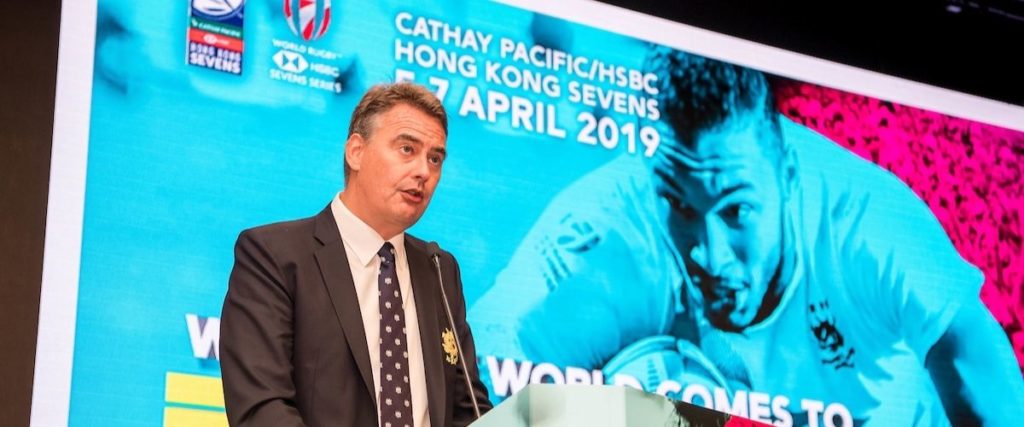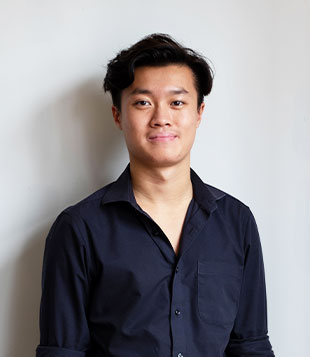Love the Rugby Sevens? HKRU CEO Robbie McRobbie shares the pivots that rugby has seen during COVID-19 – and what the union has planned, despite the uncertain future ahead.
Any Rugby Sevens fan will tell you that the highlight of the HSBC World Rugby Sevens Series every year is the Hong Kong edition which typically takes place in late March or early April, drawing in raucous crowds of spectators from both at home and abroad. With the 2020 edition becoming the first-ever Hong Kong Sevens to be cancelled since its inception in 1976, following concerns over the COVID-19 pandemic, it’s no surprise that many were left wondering what the future of Hong Kong rugby would look like. We sat down with Hong Kong Rugby Union (HKRU) CEO Robbie McRobbie to gather his thoughts on the future of rugby in our city, and to learn more about the plans that the HKRU has for the future.
To Robbie McRobbie, challenges are nothing new. Before entering the world of rugby, he served in the Hong Kong Police Force for 11 years, although, in his own words, he wasn’t exactly a stellar police officer. “I very much enjoyed it, but wasn’t very good – I only arrested one person, and he was burglarising my own flat!” he recalls. After spending time as the Assistant Manager of the Police Officers’ Club, where he was in charge of organising events and sports competitions for his fellow officers, he decided to complete a sports qualification at HKU Space, eventually leaving the Force in 2003 to join the HKRU.
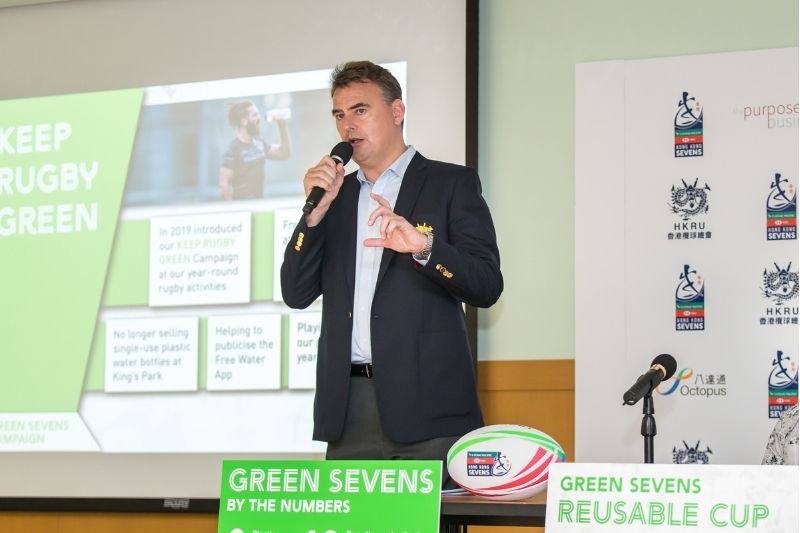
The Future of the Hong Kong Sevens
Today, as the CEO of the HKRU, Robbie is responsible for managing the second-largest National Sports Association in Hong Kong, and organising international tournaments and events, the most famous of which is the Hong Kong Sevens, a spectacle enjoyed by more than 120,000 rugby fans from all over the world every year.
Back in July, the South China Morning Post reported that the HKRU lost a staggering HKD 150 million as a result of the Hong Kong Sevens’ cancellation. This, coupled with Robbie’s estimate that 95% of the HKRU’s annual revenue comes from hosting the Sevens, would suggest that the cancellation of this year’s premier event would have had nothing short of devastating consequences for the HKRU. And although the HKRU has made efforts in diversifying its revenue streams over the past few years, it’s still “very difficult to find something as financially successful as the Sevens to make up for that shortfall,” Robbie concedes.
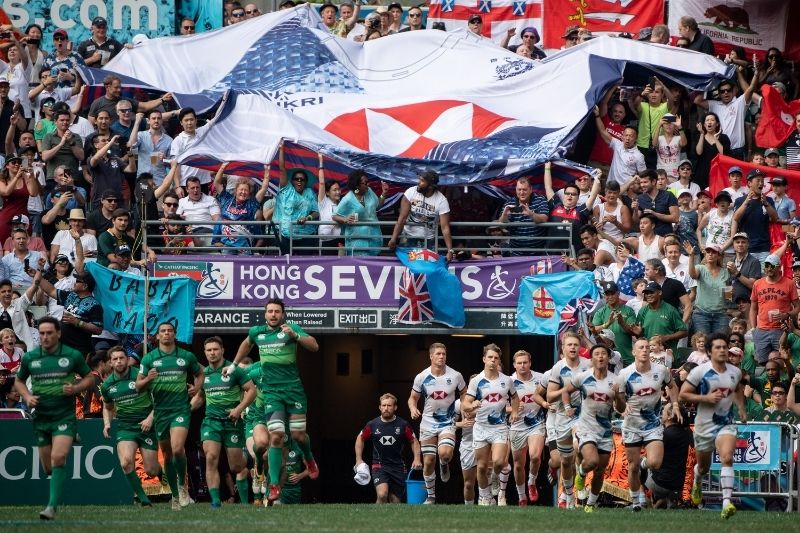
With that said, the HKRU was able to survive this year thanks to significant financial reserves that previous boards had specifically put away for a rainy day – or in the case of COVID-19, rainy months. They are now looking at creating their own education programmes which will utilise the 10 qualified teachers amongst their staff and professional players, and are also looking to broaden their portfolios of sponsors, supporters, and partners by looking at companies in education, health, and lifestyle. But at the end of the day, “there is no easy fix for not having Sevens,” admits Robbie.
Looking forward, Robbie is confident that the Sevens will go on in 2021. Currently, the HKRU is looking at proposed dates of April 2 to April 4, and are in close contact with the Hong Kong government to ensure that they will be able to host the event in accordance with existing COVID-19 regulations. With COVID-19 still in play here in Hong Kong, Robbie is wary of making promises as it’s still possible that we may experience a fourth or fifth wave of the virus in the upcoming months. But it is without a doubt an encouraging sign for rugby fans that the HKRU is determinedly planning for their annually held, world-famous event next year.
The Impact of COVID-19 on Hong Kong Rugby
Despite the double whammy that the Sevens endured this year (the original April edition was postponed in February, and a proposed October version was cancelled in June), rugby has slowly started up again in Hong Kong. The Leisure and Cultural Services Department has gradually reopened sports fields over the last couple of months, and Round 1 of the Saxo Markets Men’s Premiership (the highest level of competitive rugby in Hong Kong) began on the 7th of November. The HKRU has developed a set of “Return to Rugby” protocols that it hopes will allow players to continue playing the game they love, with the lowest possible risk of infection. Additionally, the Union sought to ensure that players who might have let themselves go a little bit during the lockdown period were given ample time to get back into shape, with a mandatory four-week training period required of players from all levels before they were allowed to participate in competitive matches. “If they just went straight back to playing games, the risk of injury would be very high,” Robbie explains.
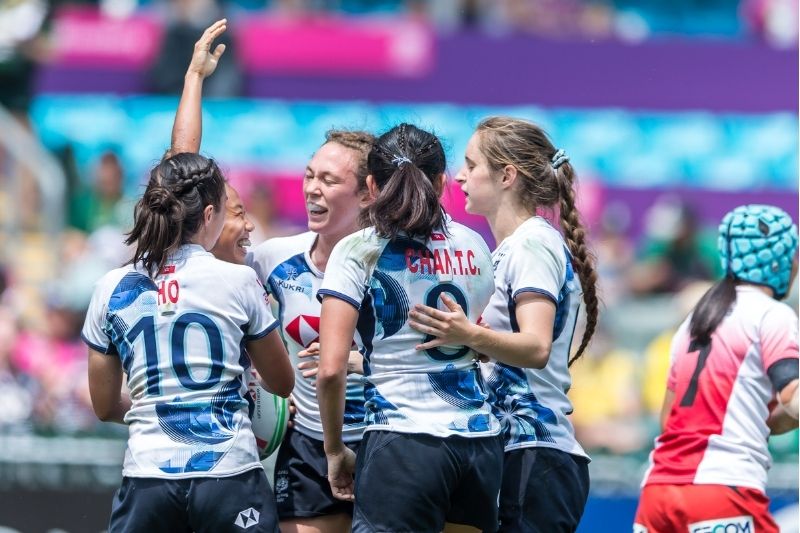
But Robbie thinks sports shouldn’t be looked at any differently than other activities. “Playing sport is no different to going to work, going to school, or anything else in terms of social distancing risk,” Robbie asserts. The HKRU’s “Return to Rugby” protocols include temperature checking, health declarations, the ability to track and trace players, and plenty of hand sanitiser. At the moment, the Home Affairs Bureau’s rugby guidelines allow for a maximum of 33 players on the pitch at any given time, which is doable as 15s rugby consists of 30 players on the pitch. For those off the pitch, including replacements, physios, or coaches, social distancing requirements of no more than four in a group and the wearing of face masks will have to be adhered to.
Games will be played behind closed doors for the foreseeable future, but they’ll be live-streamed for people to watch on Facebook, Youtube, or the HKRU’s official website. Robbie doesn’t know when live spectators will be allowed again, simply reiterating that we’re all reliant on each other following the rules in order for social distancing regulations to be relaxed and that if we “continue to keep those numbers low. Hopefully, then, the government will respond to that in a positive way and continue to relax restrictions over the coming weeks.”
With regards to how players fared during isolation, Robbie reveals that their problems went much further than just being unable to play the game they love. “Many people are struggling with mental health issues as a result of the pandemic – isolation, health concerns, financial woes, it all adds up,” he notes. The Union organised virtual exercise content and video training sessions to try and help players maintain their fitness levels, but the difficulties were more to do with the mental effects of the lockdown rather than the physical effects. Anyone who’s ever played rugby will tell you that it’s an extremely social game; a lot of players’ social lives are built around their involvement with rugby and being a member of a rugby team. “I think the repercussions of COVID-19 will be felt across society for a long time to come, unfortunately,” Robbie acknowledges.
Rugby Fanzone and Kai Tak Sports Park
In early November, the HKRU released details of a new Rugby Fanzone event for the ongoing Rugby Championship (formerly known as the Tri-Nations), similar to the Fanzone event that they organised for the Rugby World Cup in September of last year. The first match of the Rugby Championship, featuring Australia and New Zealand, was played on November 7th, and there will be four more matches for rugby fans to attend – one each Saturday from November 14th to December 5th. Located at AIA Vitality Park near the Central Harbourfront, the venue will include a giant LED screen on which games will be streamed, state-of-the-art sound systems, and most importantly, socially distanced pods – akin to those used in the UK’s socially distanced concerts – that will allow rugby fans to enjoy the games while still adhering to government regulations.
It isn’t easy to figure out which games can be hosted in such a format, as the majority of rugby is played in Europe, and the time difference between Hong Kong and Europe – seven to eight hours – makes it extremely difficult to understand which events will generate a substantial audience. For instance, the 2019 Rugby World Cup was hosted by Japan which is one hour ahead of Hong Kong, making it easy for spectators to attend the Rugby Fanzone event last year. This year, the Rugby Championship is being played in Australia, which is three hours ahead of Hong Kong. Robbie says that the main motivation for hosting another Rugby Fanzone was to provide people with the opportunity to go out in a socially distanced group and watch rugby live on a big screen. “If this works well, then going forward, when COVID-19 is behind us, and the time zone difference works for us, we’d be keen to do more of these events,” he added.
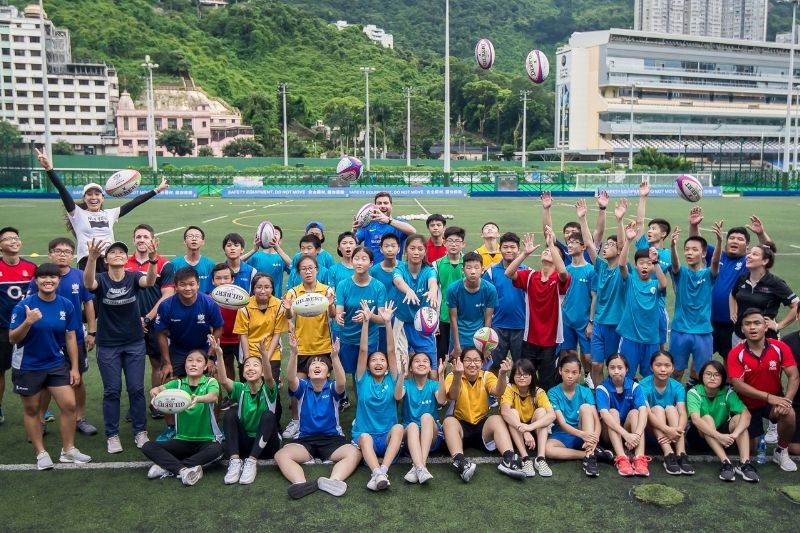
Located at San Po Kong (near the old Kai Tak Airport), Kai Tak Sports Park – currently under construction and estimated to be completed by 2023 – will soon become the new home of the Hong Kong Sevens, starting from 2024 onwards. Robbie hopes that the venue will serve as a game-changer for the Hong Kong sporting industry. “Kai Tak represents a fantastic opportunity for us to establish an environment and a culture where we can have a football team in the China Super League, a basketball team in the East Asia Super League, and a rugby team playing in Super Rugby,” he points out. The new stadium plans to accommodate a fixed seating capacity of 50,000 upon completion, and will also have a retractable roof, as well as a flexible pitch surface that will be suitable for hosting events in any weather.
Robbie believes Kai Tak is proof that the Hong Kong sporting industry is intent on enhancing the live fan experience when it comes to large-scale sporting events. “When somebody pays good money to go and watch a live sporting event, you really want them to be walking away at the end saying, ‘What a fantastic experience that was, from start to finish.’” Robbie maintains that Hong Kong Stadium, the current home of the Sevens, is old, tired, and lagging behind the quality of spectator experience one would find in newer stadiums around the world. “Kai Tak needs to become a vibrant and lively sporting hub, and it needs to become a centre of excellence for Hong Kong sports,” he concluded.
The Future Of The HKRU
But to improve the future of Hong Kong sports, it’s not enough to simply focus on building venues where sports can be played. “First and foremost, sports needs to remember that it has to be inspirational. That’s the most important thing about it, that it drives people to participate,” Robbie argues. He cites the so-called “Wimbledon effect” in the United Kingdom, where public tennis courts there would suddenly see an uptick in bookings and registrations – especially from children and young adults – during and after the annual Wimbledon tennis championship, widely regarded as the most prestigious competition in professional tennis. “They were inspired after watching John McEnroe and Martina Navratilova. All they wanted was to get on the tennis court with a friend and play tennis like their heroes,” he explains. Robbie fears that a lack of inspiration in sports will lead to kids not wanting to play sports, and people being unwilling to pay to watch sports, which is why it’s crucial that sporting heroes become the motivation for others to take up sporting activities, as otherwise, “people will go and find something else to do that is inspiring.”
According to Robbie, rugby registration numbers today are not radically different from what they were last year, but the long term trend is still one of decline. This is a by-product of Hong Kong’s extremely low birth rate; in 2017, Statista reported that Hong Kong’s fertility rate was 1.19 children per woman, making it the country with the fourth-lowest birth rate in the world. Thus, declining numbers of participants in sports, especially among youths, can be attributed to the simple fact that there just aren’t as many kids today compared to 20, or even 10 years ago.
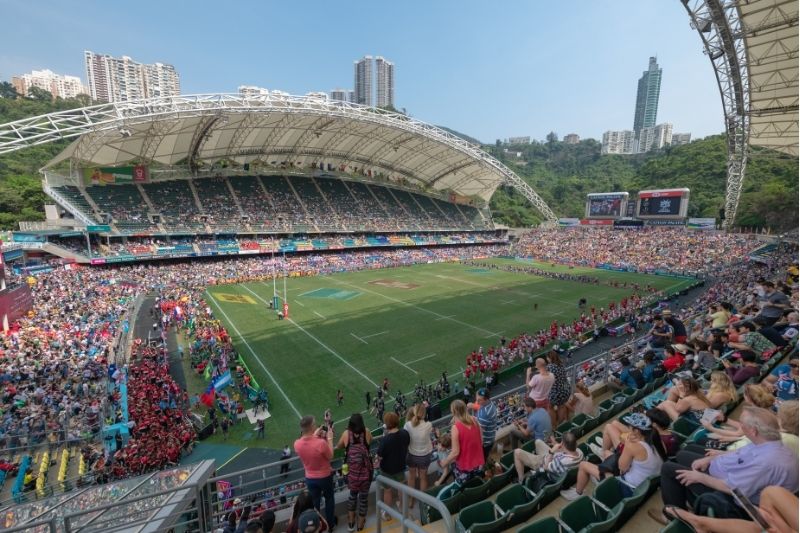
Last November, the Union published its four-year strategic plan, which identified the key reasons why people get involved in rugby, stay in rugby, and drop out of rugby. Robbie explains that they are looking to use that information to create best practices, and the HKRU is exploring an accreditation system for clubs to help them implement that best practice. “This goes back to what I was saying before about the quality of events, the quality of experience when people go to play rugby at a local club needs to be high. If it’s not fun and inspiring, they’re not going to go,” Robbie reiterates.
Looking ahead, the Hong Kong sporting industry as a whole will inevitably face numerous challenges over the next few years. As Hong Kong seeks to recover from the devastating damage caused by COVID-19, the key focus of the HKRU in the upcoming years is to encourage greater numbers of participation in rugby. But regardless of the problems the HKRU might potentially face going forward, Robbie remains optimistic about the future of Hong Kong rugby. “We’ve got a good product, but we have to continue to ensure the quality of delivery, and aspire towards excellence in everything that we do. This way, we’ll get more kids who want to play rugby, more parents wanting their kids to play rugby, and we’ll be able to grow the community. That’s the hope.”
Related Articles
Ida Sports: How Women’s Football Shoes Are Challenging Gender Inequality
